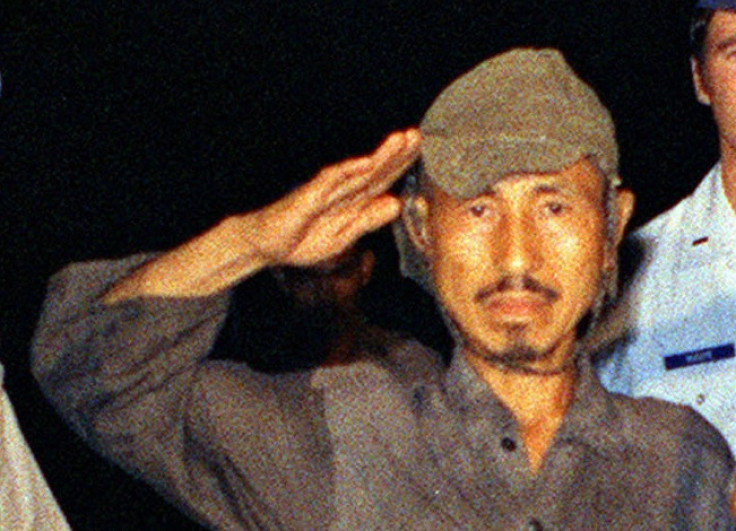Hiroo Onada Dies: Japan's 'Last WWII Soldier' Resisted Surrender in Jungle for 29 Years

A Japanese soldier who carried on fighting World War II for almost three decades after it finished, has died.
Hiroo Onoda, who passed away at 91, spent 29 years living in the Philippines jungle as a "ghost" and fighting for imperial Japan, long after the Empire surrendered to US forces in 1945.
He did not know the war was over and only laid down his weapons when his aging commanding officer was flown in to order him to cease hostilities in 1974.
Onada then ceremoniously surrendered his sword to the president of the Philippines and returned to Japan, where he was greeted as a hero by his nation.
His epic solo war had lasted so long that his name had been enshrined at a temple dedicated to the 'Living spirit of the war dead' in his home country during his absence.
Obstinate Onoda defied numerous attempts to get him to lay down his arms in the years after WWII. He dismissed search parties on foot and leaflets dropped from planes as enemy activity, saying: "The leaflets they dropped were filled with mistakes so I judged it was a plot by the Americans."
Speaking about why he carried on fighting so long after peace broke out, Onoda said later: "Every Japanese soldier was prepared for death, but as an intelligence officer I was ordered to conduct guerrilla warfare and not to die. I had to follow my orders as I was a soldier."
Onoda's long war began in 1944 when he and two other soldiers landed on Lubang Island on a mission to hamper enemy attacks – and to not surrender under any circumstances at all.
Cut off from other comrades, they stayed on a war footing for years – engaging in shootouts with locals and the police, until Onoda was the last one left standing.
He subsisted on a simple diet by growing crops and slaughtering cattle for food.
Onoda was eventually coaxed out of hiding by a "hippie kid" from Japan who was on a trip to find "Lieutenant Onoda, a panda and the Abominable Snowman – in that order."
It was traveller Norio Suzuki who told government officials in Japan he had found Onoda and that fresh orders were required by the old soldier before he would surrender. These were duly delivered in person by his commanding officer.
Onoda was then pardoned by the President of the Philippines for his part in the deaths of 30 Filipinos during his lone war.
Upon returning home, Onoda quickly grew jaded with post-war Japan, which he thought had lost touch with its traditions. He emigrated to Brazil in 1975 and became a ranch farmer, before coming home in 1984 and teaching survival skills.
Explaining his unfailing – even excessive, dedication to duty in the face of reality, Onoda said: "I became an officer and I received an order. If I could not carry it out, I would feel shame. I am very competitive."
© Copyright IBTimes 2024. All rights reserved.







